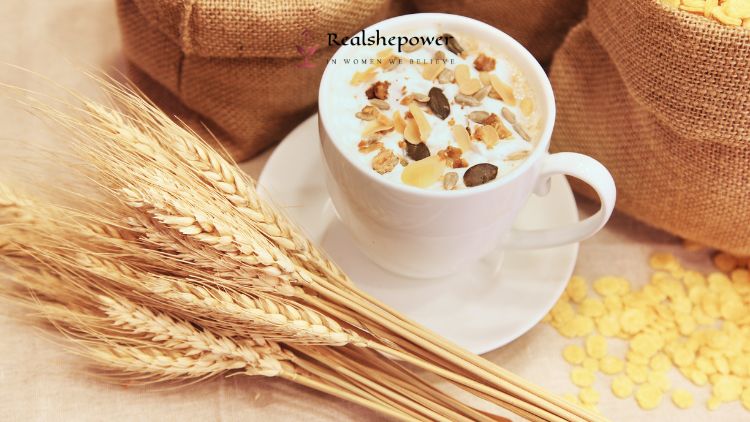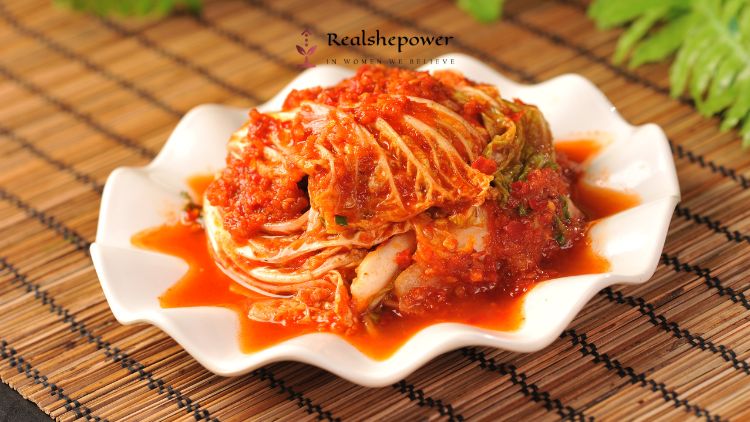Your Gut Needs Prebiotics! 5 ways to improve your gut health


Your gut is home to more than 1,000 different species of bacteria, which aid in proper digestion. However, are you sure that they are fit and prepared to perform their best work?
You’ve probably heard that it’s crucial to consume foods high in probiotics, such as yogurt or kimchi, for a healthy gut. This is correct. However, probiotics are just the beginning when it comes to having a significant impact on your gut health. You also require prebiotics.
What is the difference between probiotic and prebiotic?
Probiotics assist in increasing the number of beneficial bacteria in your body. Prebiotics, however, are essential for ensuring that your beneficial bacteria are strong, thriving, and actively working for you.
According to Dr. Robert Martindale, “prebiotics let you grow bacteria yourself and nourish your own microbiome.”
What foods are good sources of prebiotics?
Whole grains contain prebiotics. They contain a lot of fibre, which we cannot digest but which our gut flora adore. Wheat, oats, brown rice, and corn are examples of common whole grains included in American diets. Try couscous, barley, chia, flaxseed, quinoa, sorghum, or kasha, but there are a tonne more alternatives. The list is endless!
What are the benefits of prebiotics?
Our gut bacteria produce short-chain fatty acids (SCFAs) when they consume prebiotics. The heart, intestines, immune system, and numerous other organs and cells all need SCFAs to support immunological health and function. According to multiple studies, eating at least three servings of whole grains daily can significantly lower your chance of developing a wide range of health issues. These consist of:
- Constipation
- Inflammation
- Obesity
- Heart disease and diabetes
- Both anxiety and depression
Your relationship with your gut microbes is extremely crucial. Always remember to consume appropriate servings of yogurt and whole grains in your diet.
Let’s learn about five techniques to improve your gut health, including consuming adequate amounts of probiotics and prebiotics.

1. Consume foods high in probiotics and fibre
According to study, fibre is a nutrient derived from plants that lowers the risk of metabolic illnesses by promoting the diversity and proliferation of healthy bacteria in the gut. The fibre in sweet potatoes, spinach, beets, carrots, and fennel is naturally beneficial. Whole grains (excellent source of prebiotics) are another example of fibre in addition to fruits and vegetables.
Due to the probiotics they contain, fermented foods like yoghurt, kimchi, sauerkraut, and kombucha are appreciated for their gut-healing properties. Particularly yoghurt might improve gastrointestinal issues like constipation, inflammatory bowel illness, and diarrhoea. According to one study, individuals who regularly consume yoghurt have higher levels of the healthy bacteria lactobacilli and lower levels of the inflammatory enterobacterium.
2. Regular exercise
For so many elements of the human body, including the microbiome, movement is medicine. Researchers have discovered that exercise encourages an increase in diversity of good bacteria in the gut in both animal and human studies.
A 2019 review expressly stated that exercise has the capacity to change the composition and functionality of gut bacteria independently of food, despite the fact that many research highlight the complementary roles exercise and diet may play in positively altering gut health. Longer workouts and high-intensity aerobic exercise were found to have the greatest effects on gut bacteria diversity and function in connection to overall health.

3. Consume fewer sugars and sweets
The imbalance of gut bacteria known as gut dysbiosis may be brought on by consuming large amounts of sugar or artificial sweeteners. The gut microbiome may be badly impacted by the typical Western diet, which is heavy in sugar and fat, according to the authors of a 2015 study. This in turn may affect the brain and behaviour.
The effects of artificial sweeteners on gut flora on humans have been shown to have a negative impact on blood glucose levels, according to Research. This indicates that artificial sweeteners, which are not actually sugars, may raise blood sugar levels.
4. Quit Smoking
Smoking harms both the gut and the heart and lungs. Furthermore, it significantly raises the risk of cancer.
Smoking affects the intestinal flora by elevating potentially hazardous microbes while lowering the numbers of healthy ones, according to research that was published over a 16-year period.
These effects could raise the risk of systemic and intestinal diseases such inflammatory bowel disease (IBD).
5. Reduce Stress Levels
A range of stressors can have a negative impact on gut health in humans, including:
- Environmental stress, such as that caused by a loud noise, a very cold temperature, or both
- Circadian rhythm disruption
- Psychological stress
- Lack of sleep
Meditation, deep breathing exercises, and progressive muscle relaxation are a few stress management techniques. Stress levels can also be reduced by exercising frequently, getting enough sleep, and maintaining a healthy diet. Sometimes maintaining your gut health requires going for daily walks in the park.
Before we go, here are some of the best probiotic and prebiotic foods to incorporate into your daily diet.

- Probiotic Foods
- fermented vegetables
- kefir
- kimchi
- kombucha
- miso
- sauerkraut
- tempeh
- Prebiotic Foods
- asparagus
- bananas
- chicory
- garlic
- Jerusalem artichoke
- onions
- whole grains
Final Words
Keeping your gut in good shape helps your body’s immune system and general wellness. You can improve the diversity and quantity of bacteria in your gut by adopting the proper dietary and lifestyle changes. You can create positive changes by taking probiotics, eating a fiber-rich vegetarian diet, and refraining from smoking or drinking. You can also modify your way of living by getting enough sleep and exercising on a regular basis.

